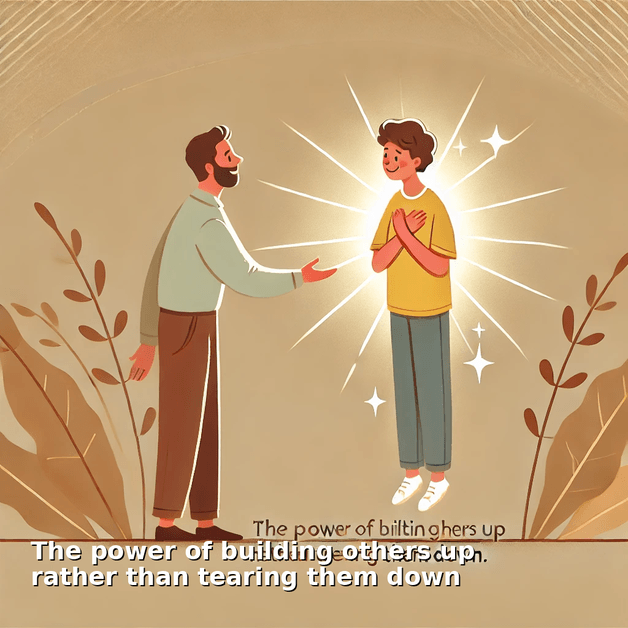
Why tearing others down won’t build you up- and what happens when we big each other up instead.
I had an experience recently that really brought home how we have a choice in how we respond to negativity– whether we add fuel to the fire or try to shift the energy in a different direction.
A very talented and knowledgeable teacher having a dig about another very talented teacher and their method during our lessons. I wanted to jump right in there and then to defend and challenge. You know that immediate gut response.
Thankfully my newer self took charge and kept me seated. Instead of reacting, I waited for the right moment, took them aside quietly the next morning, and we had a private conversation. No drama, no shame. Just a simple reflection. The difference was astonishing. The undermining stopped. The energy in the room changed. And the learning was so much better.
Why Do People Do This?
It’s not uncommon. In-fact you might say we (Brits) have an almost cultural habit of quietly (or not so quietly) chipping away. There is something in our collective psyche that can lean toward criticism that can be very subtle or something much stronger, undermining as a way of self-promoting– particularly in professional spaces. I am sure we have all been guilty of it, party to it or witnessed it at some point. We can dress it up as something else, like wit or banter, but the reality is, it’s a survival tactic. We don’t believe there is enough room for success for everyone.
I had to look this next bit up
It must be a thing as it has a name. Psychologists call it “Negative other-presentation” – highlighting the flaws in others to boost their own standing. Whether it is driven by insecurity, envy, or a misguided sense of competition, the end result will be the same– It builds barriers, creates division, trust is lost, and it is actually quite uncomfortable and wearing. It is not easy to learn in that environment or create connection (I felt angry, isolated, and a whole lot of other stuff.).
There is actually quite a bit of research around this subject!
Research into downward social comparison (Wills, et al 1981) shows how people boost their self esteem by comparing themselves to those they perceive as “worse off”.
“Self-enhancement” Wikipedia – that is pretty interesting.
“When we judge or criticise another person, it says nothing about that person; it merely says something about our own need to be critical.”– Winston Churchill
The Cost of Cutting Others Down
It might give you a quick fix and sense of superiority, it is not going to last. It is not sustanable. If you are trying to position yourself by undermining someone else, it will eventually wear thin with the people around you, it detracts form the brilliance of you, and it will eventually leave you isolated. The more people you undermine, the more wary you need to be. Exhausting!
The Power of Lifting Each Other Up
Reserch shows that building others up– with no expectation creates stronger and more trusting relationships
Positive reinforcement improves collabortion, boosts morale, and has even been shown to improve performance. Studies on prosocial behaviour (Fehr, Fischbacher et al 2003) show that when people act for the benefit of others, it creates a ripple effect– more cooporation, more kindness, and more success for everyone involved.
A study in 2012 by researchers at National Institute for Physiological Sciences found that receiving a compliment activates the same part of the brain as receiving a cash reward. A compliment is valuable!
If we start to believe that success is plentiful instead of limited, we can celebrate and highlight someone elses win, sharing someone elses success and putting them in the spotlight is good for everyone in that moment.
We are all works in progress– My newer me thought the most professional and kind way forward– was a private word would carry more weight, hopefully creating space for change with no shame.
Let’s try and make a habit of building each other up, celebrating each others successes and creating connection, collaboration, cooperation and even more success for everyone involved, and not forgetting a professional and trustworthy learning space.
